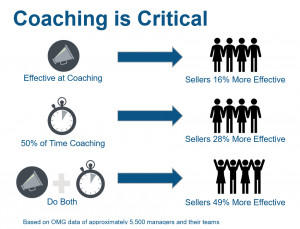This week I was blown away by the extraordinary power of conflict in a company. At times it can be a destructive force that tears you apart if you don’t address it and resolution cannot occur. On the other hand, conflict is also an extraordinary opportunity to learn how to resolve challenges, improve policies and procedures as well as strengthening relationships between team members and leadership.
While many consider conflict management training to be dry and arduous, it can actually be a beckon for leadership development and nurturing an environment of success, high performance, and a solutions-oriented culture.
Conflict is a reality
Nearly every company has conflict, it is a natural part of life and the workplace. Conflict can cause negative emotions such as anger, frustration, or depression when left untreated. It also creates the potential for missed deadlines, increased errors in judgment, and poor communication which can lead to lost sales and clients.
Improve communication, improve conflict resolution
There are many ways to manage conflict but a key component of successfully managing it is to ensure communication skills are prevalent among all participants, that includes employees, managers, the director, and anyone else involved in the organization. Communication is pivotal in the workplace and having the ability to effectively identify parties that are weak in their communication skills will be a high priority in resolving these issues.
When a person is comfortable with their ability to communicate, it will give them an opportunity to step up as a leader and recognize appropriate ways to handle situations.
This is why Investing in conflict management training is more than just an investment in your company’s culture and growth potential, it’s an investment into the lives of each and every team member.
What is conflict management training?
Specifically speaking, conflict management training consists of many dynamic variables that cover conflicts of many types. Courses upon courses exist that are backed by Ph.D. level groups and personal studies that teach techniques that have been applied in proven situations.
There are numerous schools of thought that many organizations throughout the years have tested. There is no right or wrong way, but I will recommend keeping the main thing the main thing and focus on what is natural and necessary.
In my experience, conflict in itself is a great chance to develop the abilities of your management team and give them the confidence they need to guide employees through turbulent times. It teaches how to prevent conflicts from escalating by identifying warning signs and taking action before damage occurs.
This is good for business, good for organizational growth, and can open up a world of opportunity to improve the internal process for how conflict is handled from all levels.

What are the five conflict management strategies?
While there may be a standard “five strategies” for conflict management, and I’m sure there’s a course specifically for it, here is my recommendation that can make an impact locally in your business but also can be an example of global influence for companies everywhere.
The key is to be natural and necessary.
1. Slow yourself down
In any heated exchange or uncomfortable conflict, it is important to slow down. If it means to walk away, or take a deep breath, or zip your lip, do whatever it takes to slow yourself down. Search your heart, mind, emotions, and sometimes be aware of your physical demeanor so that you can create personal space to appropriately respond to the moment.
2. Gather your thoughts
A confused mind will make confused decisions. When tensions are high and you’re dealing with personal feelings, it will be very difficult to resolve issues unless you’re able to consider all factors and make an active, yet informed assessment of the situation.
As an employee, you’ll have a different set of things to think about especially in the workplace, compared to other team members and employees, like people in leadership, management, development officers, etc. This is why it is necessary to free yourself from stress and gather your thoughts.
3. Accept your role
Everyone is a part of the equation. You must be able to accept the roles and actions that you’ve taken in conflict, or have witnessed or been involved in some way. It’s not about being perfect, it’s about admitting your decisions may have contributed to somebody else feeling a certain way or vice versa.
Workplace conflict affects the performance of individual employees as well as the larger group so it is imperative to identify and take responsibility, whether your involvement is negative or positive. Conflict resolution is not only between individuals, conflicts exist at larger, even national, scales as well. When you learn how to deal with and accept conflict in general, you’ll be better equipped to manage it no matter where you go.
4. Have the courageous conversations
We can get very caught up in our fears and concerns, especially when we are personally involved. It is important to have the courage of your convictions to express yourself. Be aware that something as simple as tone or even grammar can make a difference in how someone feels about what you say, so keep this in mind if emotional attachments come into play.
The skill of having tough conversations is worth acquiring. Those heart-to-heart talks will usually open the door to resolving major (and minor) conflicts and makes for effectively moving the conflict management process forward. Dealing with the uncomfortable feeling of having the tough talks is also part of your leadership growth and skills development.
5. Respect the relationships
You’ll learn that sometimes, in the workplace, you may not always work well with other employees, whether it’s because of communication styles, a difference in opinion or skills, or other factors, but the bottom line in the workplace is respect for everyone. Practice giving respect and things will turn out better than expected.
Conflict resolution and conflict management are closely tied to respect, so it’s important to give credit to where credit is due and own your personal leadership by managing your ability to respect regardless of how you feel.

What is the purpose of conflict management training?
In a nutshell, the purpose of these trainings is to provide programs, courses, or classes to share techniques on how to best handle conflict in the workplace so it does not hinder performance in the organization.
These trainings prepare the leadership to lead their group with skills gleaned from the training to foster a thriving work environment in a site conducive for growth. Courses vary in content and length, some will have a certain module that only focuses on communication skills, while other courses may have a module that touches on styles of breathing and meditation. There is no wrong program. In fact, there are many valuable programs on the market and a lot of them are online courses.
Online training programs that cater to a group environment and dynamics with training on interpersonal engagement are a good organization to contact. With this type of conflict resolution training in place, your workplace site will certainly be one that an employee can thrive in. Programs that deal with conflict in a positive manner will ensure organizational growth, which is what every organization strives for.
How do you train for conflict resolution?
Contact and request information from reputable companies that specialize in delivering a training program specific to conflict resolution. Doing a simple google search will get you some initial information.
You may find a program that only has training for the workplace and you may come across that only has a course for team leaders or management, etc. There’s a training program for any specific request you’re looking for.
Things to consider
Schedule the training program so it fits the makeup of your employee avatar. During the course of your training, one employee may deal with conflict in a different way than the other employee. This is why it is crucial to do your search for a training program with the entire organization in mind.
Unfortunately, conflict resolution and the skills garnered from the coursework or program don’t necessarily fit all sizes. However, best practices and principles will apply across the board. With the right program, people will build skills to easily retain what is needed in a conflict resolution scenario.
Choose the conflict resolution program that is best suited for your company and you won’t go wrong.
Business & Finance Articles on Business 2 Community
(39)
Report Post






